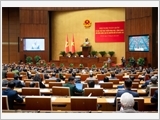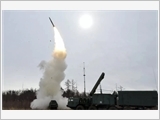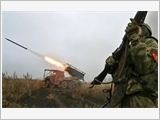
Beware of calls for political regime change in Vietnam
Tuesday, March 11, 2025, 15:25 (GMT+7)
Calls seek to incite demands for the establishment of political pluralism and opposition parties, steering the country towards a capitalist political system are extremely dangerous and warrant vigilance, resolute opposition, and outright rejection.

Geopolitical upheaval in Syria and its impacts on regional and global security
Tuesday, February 11, 2025, 10:09 (GMT+7)
On 27 November 2024, the Syrian opposition - led primarily by the Islamist group Hayat Tahrir al-Sham - launched a large-scale surprise offensive on areas under the control of the Syrian government. After more than ten days of fighting, Hayat Tahrir al-Sham’s leader, Muhammad al-Julani, declared the downfall of President Assad’s government

10 Major Global Military and Defence Events of 2024
Thursday, January 09, 2025, 10:06 (GMT+7)
In 2024, the global landscape witnessed unprecedented complexity and unpredictability, marked by intensifying strategic competition among major powers and escalating military conflicts across various regions. These developments further destabilised an already volatile global security environment. To provide a comprehensive overview of the global security landscape, the National Defence Journal presents a roundup of the 10 most significant military and defence events

A review of the global political and military landscape in 2024
Sunday, December 29, 2024, 14:44 (GMT+7)
In 2024, the global political and military landscape underwent significant changes due to the impacts of various hot spots, conflicts, and strategic competition among major powers, particularly the Russo-Ukrainian conflict, the escalating war in the Middle East, tensions on the Korean Peninsula, and increasing signs of US-China rivalry

Main trends in international relations today
Thursday, March 28, 2024, 16:21 (GMT+7)
It is said that at present and in the coming years, there are emerging global challenges and risks that no single country can resolve. These include, climate change, natural disasters, international terrorism, energy crisis, food crisis, transnational crime, cybersecurity, food security, market security, monetary security, intellectual property security, educational security, cultural security, health security, etc. Therefore, more than ever, countries around the world should strengthen cooperation to resolve these challenges and risks.

On the use of unmanned aerial vehicles in recent military conflicts
Thursday, February 29, 2024, 07:17 (GMT+7)
UAVs have proven their lethality and transformed combat in modern conflicts. The new attack tactics using UAVs have demonstrated their effectiveness through conflicts in Syria, Libya, Nagorno-Karabakh, and the Russia-Ukraine conflict. The proliferation of UAV technology has also raised concerns about the potential for an arms race, as more and more countries develop and deploy advanced UAVs. This could lead to increased tension and the risk of conflict.

Hamas - Israel conflict's multi-dimensional impacts on regional and international security
Friday, February 23, 2024, 09:45 (GMT+7)
According to analysts, the Hamas - Israel conflict not only causes instability in the region, but what is worrying is also that the conflict is deepening the division and hatred between Arabs, Muslims, and Jewish. This is also the core reason why the Middle East will still be the world’s “flash point”, and the peace process has not found a way out.

Review of the world political and military situation in 2023
Thursday, December 28, 2023, 10:53 (GMT+7)
The world political and military picture in 2023 is still mixed with light and dark colours, in which, strategic competition between major countries is still fierce, conflicts in regions continue to increase in intensity, scope and nature, etc. However, there are also many signs that the US and China are both showing efforts to control disagreements.

Ensuring and promoting human rights are Vietnam's consistent policy
Thursday, December 14, 2023, 21:38 (GMT+7)
Respecting and ensuring human rights are the consistent viewpoint and policy of our Party and State; which have been prescribed in the Constitution and laws of Vietnam over times; concretised in socio-economic development strategies and plans appropriate to each stage of the country's development; implemented actively and responsibly in the implementation of international obligations and commitments on human rights.

On the USAF’s modernisation strategy
Monday, October 23, 2023, 15:10 (GMT+7)
USAF has strong ambition to modernise its equipment, as it wants to become the world’s first air force to put the new-generation strategic bombers and the 6th-generation stealth fighter into combat. At the same time, USAF is also determined to develop UAVs operating in the formation of manned fighters. This could create an arms race between major countries as Russia and China have just begun to equip 5th generation fighter aircraft, and currently employing strategic bombers equivalent to the US’ B-1B aircraft.